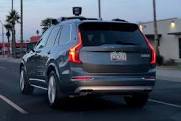Nuance Audio is a new option for people who resist traditional aids, from the company that makes Ray-Bans and operates LensCrafters.
Seekers of Meaning Podcast Posted Online March 7, 2025
What's Next Longevity Deal Talk Episode 32, January, 2025
Presentation: What's Next Longevity Venture Summit, June, 2025

 When Pew stops tracking senior adoption, does that imply a market saturated? Note this Fact Tank aggregation of technology adoption statistics (tech overall among seniors,
When Pew stops tracking senior adoption, does that imply a market saturated? Note this Fact Tank aggregation of technology adoption statistics (tech overall among seniors,  Consider CMS Five Star Rating system and how it ‘serves’ families. Rant on. No doubt you know someone who was baffled at how a terrible nursing home gets a 4 or 5 star rating from CMS’s
Consider CMS Five Star Rating system and how it ‘serves’ families. Rant on. No doubt you know someone who was baffled at how a terrible nursing home gets a 4 or 5 star rating from CMS’s  In a taxi in DC – the driver wends his way around buses and pedestrians. It’s the day after the
In a taxi in DC – the driver wends his way around buses and pedestrians. It’s the day after the  Surveys affirm increasing tech use among older adults, but for some, not so fast. Whether it is new data from
Surveys affirm increasing tech use among older adults, but for some, not so fast. Whether it is new data from